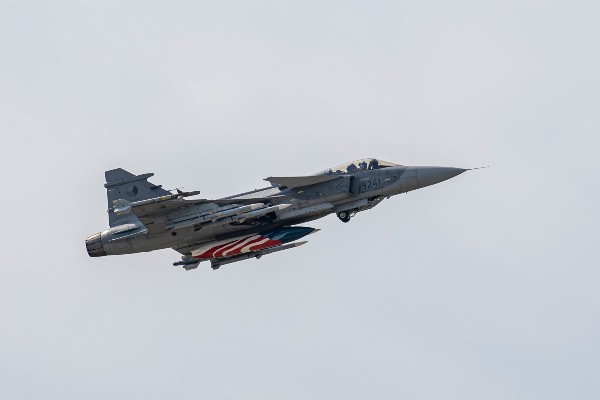
Over the course of two years, the US’ defence budget will grow by nearly 10% to reach $813 billion. This surpasses the growth of the US economy.
The budget increase for the US Department of Defense (DOD), which is detailed in the FY 2023 National Defense Budget Request, reflects the threats arising from the war in Ukraine, the tensions with China and the emergence of local conflicts in the Middle East and Africa.
However, despite increased military spending, the performance of the largest US prime contractors has been far from spectacular.
Over the past five years, the Morningstar US Aerospace and Defense index has underperformed the Morningstar US Market index by a significant margin, as is made clear in the below chart.
One reason has been the massive underperformance of Boeing (BOE), which was embroiled in the controversy and subsequent grounding of its 737 MAX aircraft – before it was hit hard by the Covid-19 pandemic.
Morningstar’s Nicholas Owens, the equity analyst covering the stock, does expect Boeing to recover. This is largely due to the certification of its new 737 MAX-7 and MAX-10 aeroplane designs and the reopening of China, where it has recently returned to active service.
Demand on the Horizon
The rest of the industry fared slightly better, with cumulative gains between 39% and 80% over the past five years.
But the situation has not always been bright and prosperous. Between 2009 and 2014, defence spending declined in the US, forcing the nation’s contractors to focus more on margin protection than business expansion. After 2015, the budget increased again, reflecting a growing demand for defence systems and a focus on China and Russia as rising threats.
A couple of M&A transactions saw the combination of Harris and L3 Technologies and the merger of United Technologies and Raytheon into Raytheon Technologies.
After the outbreak of war in Ukraine, the prospects of higher military spending and a growing profit pool are providing several opportunities for US contractors.
According to consensus data, the cumulative revenue of the six largest defence contracts (Lockheed Martin (LMT), Raytheon Technologies (RTX), General Dynamics (GD), Boeing, Northrop Grumman (NOC) and L3Harris Technologies (LHX)) is expected to grow 7.1 % per annum between 2022 and 2025.
Their net income is expected to almost double from US$19 billion in 2022 to US$34 billion in 2025.
Valuations wise, more solid prospects seem well priced in by investors.
The average EV/EBTIDA multiple for the largest US defence contractors currently stands at 16.6 times next twelve-months estimates, compared with 12.6 times for the US market.






















